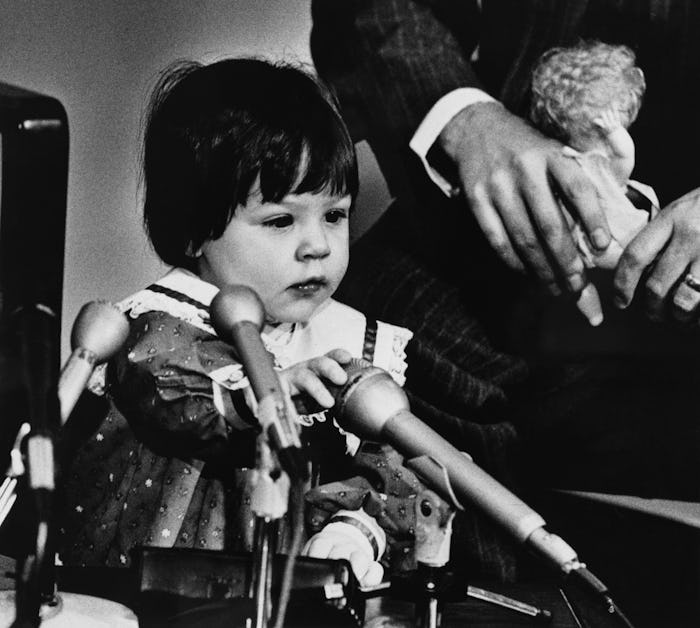Politics

The First Baby Born Via IVF In U.S. Attended Biden’s State Of The Union Address
“For the first time in my 42 years of life, I feel like an endangered species.”
There’s a very good chance that you know someone born via in vitro fertilization (IVF). The procedure is relatively commonplace — annually, more than 2% of babies born in the United States are conceived with the help of assisted reproductive technology (ART) like IVF or intrauterine insemination (IUI), according to the Centers of Disease Control and Prevention (CDC). But when Elizabeth Carr was born on Dec. 28, 1981, she was one of just a handful of so-called “test tube babies” in the world and the first in the U.S. On Thursday night, she attended President Joe Biden’s State of the Union address as a guest of Virginia’s Sen. Tim Kaine (D, VA) in order to show support for the protection of IVF as it comes under new legal threats from the far right.
Politicians’ guests to the State of the Union serve to represent lawmakers’ priorities and legislative goals. Many fear the Alabama Supreme Court’s decision that ruled frozen embryos as legal persons, may be a national bellwether and threaten access to IVF moving forward. Alabama is one of 27 states that recognize some degree of “fetal personhood,” which extends legal rights to zygotes, embryos, and fetuses as though they were already born. While this has been a legislative goal within the anti-abortion movement since the Roe v. Wade ruling in 1973, it could prove disastrous for those attempting to build their families through IVF; after the ruling, procedures were temporarily halted at multiple clincs in the state for fear of liability. (Destruction of an embryo, accidentally or otherwise, could find clinics facing wrongful death suits, and few are willing to risk their medical licenses or even freedom.)
“For the first time in my 42 years of life, I feel like an endangered species,” Carr wrote for National Public Radio’s WBUR late last month. She continued, “My parents’ greatest hope was that no one else would ever have to experience the heartache and strain they did in order to build a family. ... But that got much harder to do last week in the wake of an Alabama Supreme Court’s ruling.”
Sen. Kaine found Carr’s commentary “chilling,” per The Washington Post and extended an invitation to the Massachusetts resident who incidentally works for a company that does genetic testing on embryos created for IVF. “I am really kind of the spokesbaby for hope, which is what ultimately … all these reproductive technologies represent,” Carr told the Post.
President Biden also addressed the legal threat facing IVF in his speech, acknowledging Latorya Beasley, an Alabama social worker and guest of First Lady Jill Biden, who welcomed a daughter via IVF 14 months ago and whose plans for a second child fell through after the state’s ruling. “She was told her dream would have to wait. What her family got through should never have happened. Unless Congress acts, it could happen again, so tonight, let’s stand up for families like hers,” Biden said, urging Republican lawmakers in particular to “guarantee the right to IVF ... nationwide.”
Carr told the Post that the Alabama ruling, and what it could mean for reproductive health throughout the country is “incredibly sad and incredibly frustrating because we had come so far in crushing the stigma around infertility.”
While Alabama passed legislation on Thursday shielding healthcare providers from lawsuits and criminal prosecution for the “damage or death of an embryo” in regard to IVF, the Republican controlled state government did not make any legislative attempts to clarify the legal status of embryos. Sen. Tammy Duckworth (D, IL), who had two daughters with the help of ART, believes this lack of clarity renders the new Alabama law insufficient in protecting and supporting hopeful families. Her Access to Family Building Act (S. 3612), which was introduced in January, would prohibit the limitation of access to assisted reproductive technology, and all related medical care. As of press time, no further action has been taken on the bill.